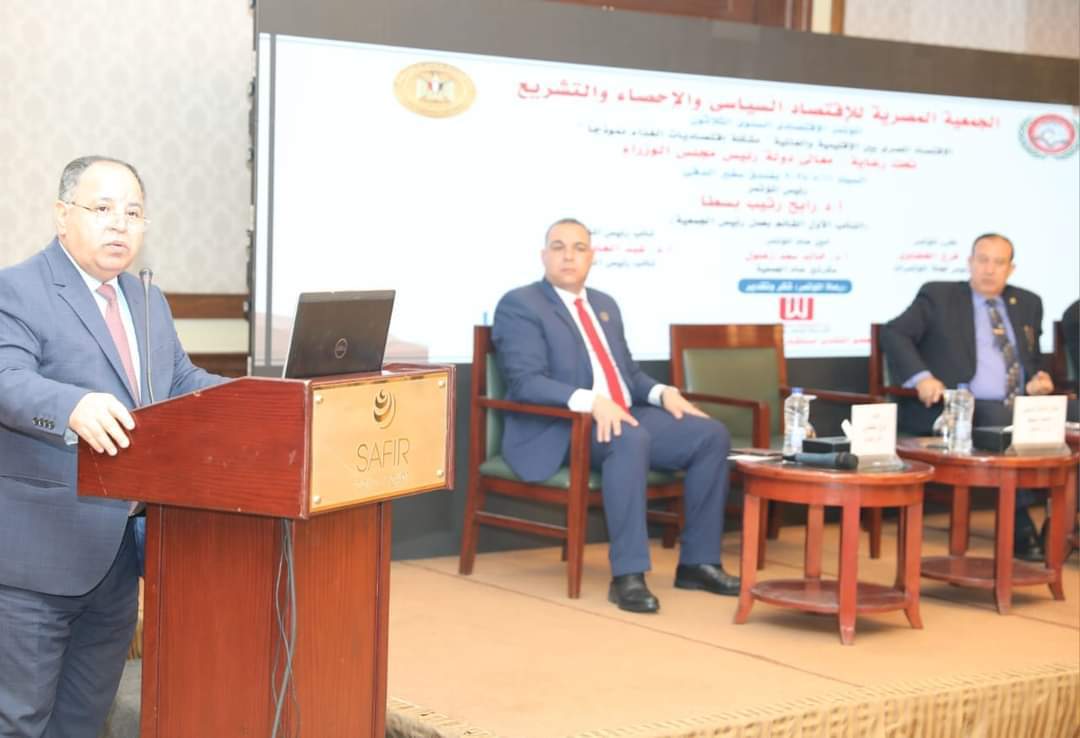State mobilises resources to boost private sector as economic growth driver: Finance Minister – Dailynewsegypt


Finance Minister Mohamed Maait has reiterated President Abdel Fattah Al-Sisi’s commitment to implementing robust measures to ensure the nation’s economic, financial, and food stability, which are fundamental components of Egypt’s comprehensive national security strategy amidst the current global and regional challenges. These efforts aim to enhance the government’s capacity to elevate the standard of living for its citizens and fulfil their essential, developmental, and public service requirements.
Speaking at the economic forum organized by the Egyptian Association for Political Economy, Statistics, and Legislation, under the theme “Navigating the Egyptian Economy: Regional and Global Perspectives… Addressing Food Economy Challenges,” Maait highlighted that the ongoing global crises underscore the soundness of Egypt’s approach in harnessing collective efforts to bolster state capabilities. This is achieved by meeting strategic agricultural development goals, which include providing citizens with quality products at reasonable prices, thereby ensuring food security and shielding the nation from international and regional market volatility. This is in line with the political leadership’s initiative to broaden agricultural and food production projects aimed at self-reliance and boosting export figures, as well as maintaining sustainable strategic reserves of vital commodities for six months.
Maait added that the government has embarked on a series of reformative actions to reshape the economic landscape and foster recovery, prioritizing agricultural and industrial output and exports in the next phase. The state is fully committed to deploying its resources to fortify the private sector’s role as the main propellant of economic growth, ensuring a more robust structure and agility in adapting to both external and internal economic perturbations, as part of the economic reform agenda backed by the IMF and global development allies.
The programme, which is garnering increased investment interest, is predicated on sustained fiscal prudence, aiming to achieve a primary budget surplus of 3.5% of GDP and setting deficit and debt ratios on a declining path, with a debt ceiling not surpassing 88.2% in the forthcoming fiscal year. International credit rating agencies have conveyed optimism regarding the prospects of the Egyptian economy, recognizing the potential for more invigorating opportunities for local and international investors. They have favourably evaluated Egypt’s new economic direction and foresee a potential upgrade in the country’s credit rating in 2024.
The Finance Minister elucidated that the government is collaborating with investors to alleviate the financial load of fostering agricultural and industrial ventures by continuing the interest rate support initiative, offering financing provisions of approximately EGP 120bn for these sectors. The national treasury is allocating EGP 8bn annually to cover the interest rate differential for beneficiaries, alongside budgetary provisions in the upcoming fiscal year to assist farmers, reinforcing the agricultural domain and fortifying Egypt’s food system.
He noted that the Egyptian economy has been grappling with intricate challenges over the past four years, exacerbated by the succession of regional and global crises. These difficulties are further intensified by the severe consequences of the ongoing conflict in Gaza, tensions in the Red Sea area, and other forms of instability in the Middle East, coupled with the adverse effects of the conflict in Ukraine.
The geopolitical unrest and regional as well as international disputes have engendered a volatile economic environment marked by decelerated economic activities, diminishing growth and investment rates, and escalating inflation on both the global and domestic fronts. This has manifested in increased financing and developmental costs, particularly due to the central bank’s tightening monetary policies, rising interest and exchange rates, and elevated transportation and logistics expenses, leading to augmented production and import costs, as well as higher prices for essential commodities, food, and services, while also considering the ramifications of the COVID-19 pandemic.
Maait pointed out that the nation’s overall fiscal intake has suffered in the last four years, owing to reduced economic dynamism and the detrimental impacts of international and regional discord on certain economic sectors like tourism, manufacturing, exports, Suez Canal revenues, and foreign investments. Expenditures have surged to unprecedented levels to counteract the severe economic jolts and mitigate their inflationary impacts, with swift interventions and extraordinary social protection measures targeting the most vulnerable segments of society, including low and middle-income households, and bolstering the sectors most affected by the economic upheaval.






